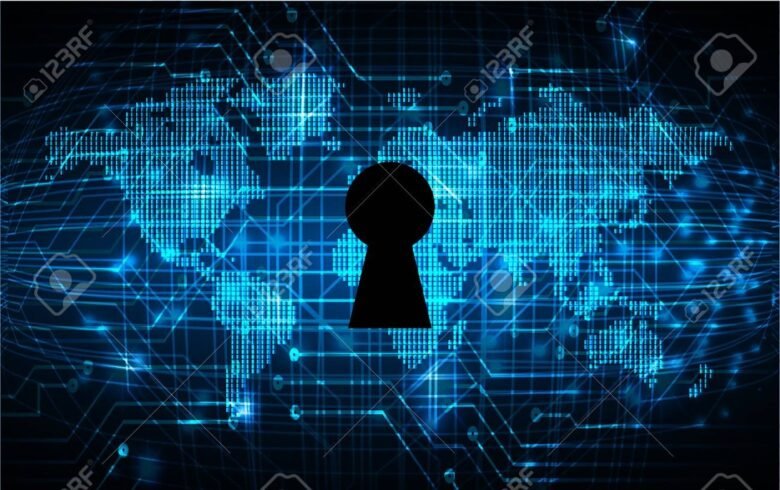The internet is becoming an integral part of our lives. It connects us with people, information, and opportunities like never before. With just a click, we can do everything from online shopping and banking to social networking and entertainment. However, this digital convenience comes with risks. Cybercriminals are constantly developing new ways to steal personal information, spread malware, and deceive unsuspecting individuals.
Anyone can become a victim of cybercrime if they’re not careful. Using antivirus software isn’t the only way to stay safe online. You also need to develop habits that protect your identity, privacy, and financial security. This article introduces some important online security tips that everyone should follow daily to stay safe, informed, and confident online.
Ensure a Strong, Unique Password for Every Account:
Using strong, unique passwords for all your accounts is one of the simplest and most effective ways to stay safe online. Using the same password on multiple websites is like using the same key to open every door. It makes it easier for hackers to break in. A strong password should contain uppercase and lowercase letters, numbers, and symbols. It shouldn’t contain easily guessed information, such as your name or date of birth. Password managers like Bitwarden or 1Password can help you securely create and maintain complex passwords.
Furthermore, enabling multi-factor authentication (MFA) where possible can add an extra layer of security. This way, someone who gets your password can’t access your account without a second verification. A strong password is the most important part of protecting your personal information.
Be Careful When Clicking on Links or Downloading Files:
One of the most common online risks today is phishing. These sneaky tactics trick people into clicking on malicious links or downloading infected files. You might receive an email that appears to be from a bank, an online store, or even a friend. You might be invited to click on a link to “verify” your account or “claim a prize.” Always carefully check the sender’s address and avoid clicking on websites that look suspicious. Some offers seem too good to be true. The same goes for downloading files: only download software, documents, or media from websites you trust. Downloading malicious content could infect your computer with a virus or ransomware, putting your money and data at risk. Caution is one of the best ways to stay online.
Update Your Software and Devices:
One of the biggest security risks is using outdated software. Cybercriminals often exploit vulnerabilities in older operating systems, browsers, and apps. Regular updates can fix these vulnerabilities and make your devices more resilient to attacks. Always enable automatic updates for your phone, tablet, and computer. Your Wi-Fi and smart home devices also need to be updated, so don’t forget. If you don’t patch one of your devices, it puts your entire network at risk. Updating your software not only improves security but also makes it work better and more reliably. Updating your system isn’t a hassle; it’s essential digital security that protects your devices from new internet threats.
Don’t Use Public Wi-Fi for Essential Activities:
Using public Wi-Fi networks (such as those in cafes, airports, and shopping malls) is simple but also very dangerous. Hackers can easily access your data, such as your login credentials and financial information, because these networks are often unsecured. Avoid accessing confidential accounts, online banking, or shopping while connected to public Wi-Fi. If you must use the internet in a public place, use a VPN (Virtual Private Network) connection. A VPN protects your privacy by encrypting everything you do online, making it invisible to others. You can also use your phone’s data connection to browse the web more securely. Never share personal information over unsecured public Wi-Fi, just as you would in crowded public places.
Use Secure Websites When Shopping Online:
Always check that the website you use for online shopping or banking is secure. Before entering any personal or payment information, check that the URL contains “https://” and a padlock icon. This indicates that the website has encrypted your information for added security. Never shop on unknown or suspicious-looking websites. Fake shopping websites sometimes lure customers with low prices. You can also use secure payment methods, such as PayPal or virtual credit cards, for added security. Only save your card information on websites when you really need it. To avoid losing money and becoming a victim of online fraud, only use secure websites and be careful when paying.
Always Back Up Your Data Regularly:
Your data can be lost at any time due to hackers, malware, or hardware failure. Regularly backing up your files keeps them safe, even if something goes wrong. You can back up your files to the cloud using services like Google Drive, Dropbox, or OneDrive, or you can use an external hard drive. Automated backup systems make backing up easy and reliable. If you have multiple copies of your data, you can’t restore them, even if a hacker hosts them and demands payment to gain access. With reliable backups, you can quickly recover your data and avoid unnecessary stress. Backups are crucial for everyone who values digital memories and data, not just for businesses.
Stay Informed and Learn More:
Cyberthreats are constantly evolving, as is the digital world. By staying informed about the latest scams, data breaches, and security tips, you can make better choices online. Read tech news, subscribe to cybersecurity blogs, or enroll in free online courses to learn more. By learning more about cybersecurity and sharing it with others, the online community becomes stronger and safer. The more you know, the harder it is for cybercriminals to mislead or manipulate you. Learning how to stay safe online is a lifelong commitment. In the ever-changing digital world, staying proactive is the best way to protect yourself.
Conclusion:
Cybersecurity is no longer a choice; it’s a daily necessity for every internet user. Every step you take to protect yourself, such as using strong passwords, avoiding phishing, keeping your software up-to-date, and backing up your data, provides an extra layer of security. The internet is a powerful tool, but it also carries many risks. By developing good habits and staying vigilant, you can enjoy all the good things the digital world has to offer without putting yourself at risk. You are the first step in protecting your computer. Be vigilant, be careful, and make online safety a priority. The more careful you are today, the safer your digital life will be tomorrow.
FAQs:
1. Why is online security vital?
Online security protects your personal information, financial data, and privacy from hackers, scammers, and identity thieves, ensuring a safe online experience.
2. How do I know if a website is secure?
Before providing any personal or payment information, check that the URL begins with “https://” and that there’s a padlock icon in the address bar.
3. Is it safe to use a free VPN?
Most free VPNs are not secure because they often sell your data or have poor encryption. For more privacy, choose a reputable paid VPN.
4. What should I do if I suspect an email is phishing?
Don’t click on links or download any files. Please mark them as spam and delete them promptly. To be safe, contact the official VPN provider directly.
5. How often should I back up my How often should I back up my data?
It is recommended to back up your important files weekly. With automatic backups, your files remain safe without requiring any extra effort from you.




